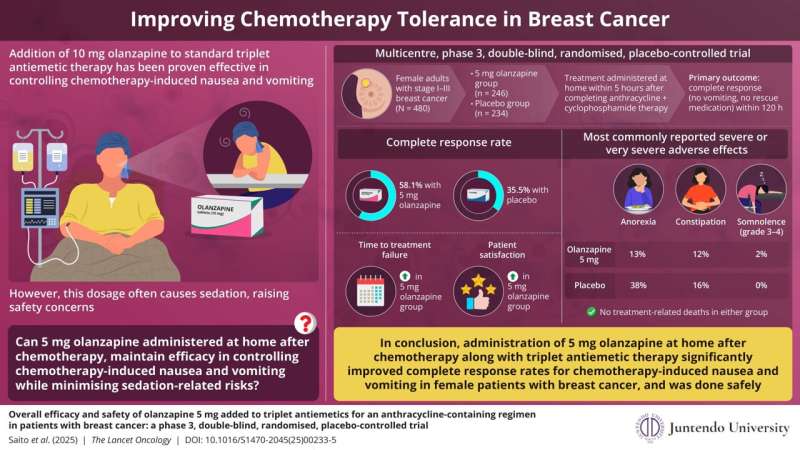Understanding Nausea
Nausea is a uneasy sensation in the stomach that often precedes vomiting. It's a protective mechanism triggered by the brain, which coordinates the body's response to potential threats or irritants. While nausea itself is not an illness, it can be a symptom of various underlying conditions or environmental factors.
Common Causes of Nausea
Nausea can arise from a wide range of causes, including:
- Gastrointestinal issues: Conditions like gastritis, ulcers, or food poisoning can irritate the stomach lining and trigger nausea.
- Motion sickness: The inner ear's balance system sends conflicting signals to the brain, resulting in nausea and vertigo.
- Medications: Certain medications, such as antibiotics, chemotherapy drugs, or pain relievers, can have nausea as a side effect.
- Pregnancy: Hormonal changes and increased sensitivity to smells can contribute to morning sickness in pregnant women.
- Emotional factors: Anxiety, stress, or depression can sometimes manifest as nausea.
Tea and Nausea: Exploring the Connection
While tea is generally considered a soothing and beneficial beverage, there are several reasons why it might cause nausea in some individuals:
Caffeine Content
Tea, particularly black and green varieties, contains caffeine. Caffeine is a stimulant that can irritate the stomach lining and increase the production of stomach acid. For individuals with sensitive stomachs or acid reflux, this can lead to nausea or heartburn.
Tannins
Tea leaves contain tannins, which are polyphenolic compounds that contribute to the astringent taste of tea. Tannins can interact with proteins in the stomach, potentially causing digestive discomfort, including nausea, for some people.
Acidity
Tea is naturally acidic, with a pH ranging from 4.9 to 5.7. This acidity can be hard on the stomach, especially for individuals with sensitive digestive systems or those prone to acid reflux. The acidic nature of tea may irritate the stomach lining and trigger nausea.
Sensitivity or Intolerance
In some cases, nausea after drinking tea could be a sign of an underlying sensitivity or intolerance to certain compounds found in tea. For example, some people may have an intolerance to tannins or caffeine, leading to digestive issues and nausea.
Preventing and Alleviating Tea-Induced Nausea
If you find that tea consistently causes you to feel nauseous, there are several steps you can take to mitigate or prevent this issue:
Choose Herbal or Decaffeinated Teas
Opting for herbal teas or decaffeinated varieties can help reduce the potential irritation caused by caffeine. Herbal teas like chamomile, ginger, or peppermint are naturally caffeine-free and may be easier on the stomach.
Adjust Brewing Time
Brewing tea for an extended period can increase the extraction of tannins, leading to a stronger, more astringent flavor. Try reducing the steeping time or using a smaller amount of tea leaves to reduce the concentration of tannins.
Add Milk or a Dairy Alternative
Adding a splash of milk or a dairy alternative like almond or soy milk can help neutralize some of the acidity in tea, making it gentler on the stomach.
Avoid Tea on an Empty Stomach
Drinking tea on an empty stomach may exacerbate nausea, as the stomach's acidic environment can further irritate the lining. Try consuming tea with or after a light snack or meal to provide a buffer against the potential irritation.
Stay Hydrated
Dehydration can contribute to nausea, so it's essential to drink enough water throughout the day. Sipping on water or other hydrating beverages alongside your tea can help mitigate the risk of dehydration-related nausea.
Consider Over-the-Counter Medications
If nausea persists despite trying the above strategies, you may consider taking over-the-counter medications like antacids or anti-nausea medications. However, it's essential to consult with a healthcare professional to ensure these medications are safe for you and won't interact with any existing conditions or prescriptions.
When to Seek Professional Help
While occasional nausea after drinking tea may be manageable with the tips mentioned above, persistent or severe nausea should be taken seriously. If you experience frequent or prolonged nausea, it's crucial to consult with a healthcare professional to rule out any underlying medical conditions. In some cases, tea-induced nausea could be a symptom of a more significant issue that requires medical attention.
Remember, everyone's body reacts differently to various foods and beverages. If you find that tea consistently causes nausea despite trying different strategies, it may be best to consider alternative beverages that don't trigger this unpleasant reaction.
In conclusion, tea-induced nausea can be a frustrating experience, but by understanding the potential causes and implementing preventive measures, you can often alleviate or reduce this discomfort. Stay mindful of your body's responses, experiment with different tea varieties and brewing methods, and don't hesitate to seek professional guidance if the issue persists.
FAQs
Why does tea make me nauseous?
Tea can cause nausea for several reasons, including its caffeine content, tannins, acidity, or an underlying sensitivity or intolerance to certain compounds found in tea.
Is it normal to feel nauseous after drinking tea?
While not everyone experiences nausea from drinking tea, it is a relatively common side effect for some individuals. If you consistently feel nauseous after consuming tea, it's worth exploring the potential causes and trying preventive measures.
How can I prevent tea-induced nausea?
To prevent nausea from tea, you can try choosing herbal or decaffeinated teas, adjusting the brewing time, adding milk or a dairy alternative, avoiding tea on an empty stomach, staying hydrated, or considering over-the-counter medications like antacids or anti-nausea medications.
When should I seek medical advice for nausea after drinking tea?
If you experience frequent or prolonged nausea after drinking tea, it's crucial to consult with a healthcare professional to rule out any underlying medical conditions. Persistent or severe nausea should be taken seriously and evaluated by a doctor.
Are there certain types of tea that are less likely to cause nausea?
Herbal teas and decaffeinated varieties are generally less likely to cause nausea, as they are naturally caffeine-free and may have a lower concentration of tannins. Teas like chamomile, ginger, or peppermint are often easier on the stomach.
Disclaimer: This article is for informational purposes only and does not constitute medical advice. Always consult with a healthcare professional before starting any new treatment regimen.
Related Coverage
Today's porn saturation has normalized monotonous, male-centric sex routines. Women report predictability and laziness leaving them turned off and nauseated....
Explore the potential causes of tea-induced nausea, such as caffeine, tannins, and acidity, and discover effective strategies to prevent and alleviate this discomfort....
Do you feel nauseated at night as a female? Discover common causes like hormones, acid reflux, stress, food sensitivities. Get tips to prevent and treat nausea....
Queasiness describes an unsettled stomach sensation related to early nausea without necessarily vomiting. Causes include medication, motion sickness, stress, food triggers....
Find effective chemo-induced nausea relief with low-dose olanzapine, diet tips, and safe strategies to stay strong during treatment....
Nighttime nausea has many potential causes including GERD, pregnancy, migraines, gastroparesis, anxiety, and medication side effects. Tips to relieve and prevent nausea....
Nausea involves feeling like you may vomit. Pregnancy, infections, medications, digestive issues and motion sickness are common causes. Treatments include medications, lifestyle changes and addressing underlying conditions....
Nausea is a common side effect of fasting. Drink water, use acupressure, take supplements like ginger, and relax to ease symptoms. See a doctor if nausea is severe....
Find out the correct ondansetron dosage for adults and kids, timing, forms, and safety tips to relieve nausea quickly and safely....
Learn about ondansetron side effects, how to manage them, and what to expect during treatment for nausea and vomiting....








